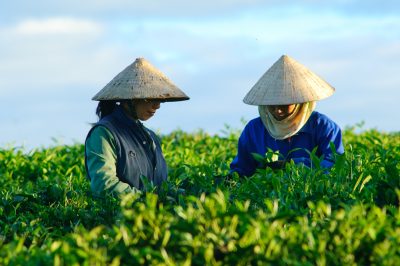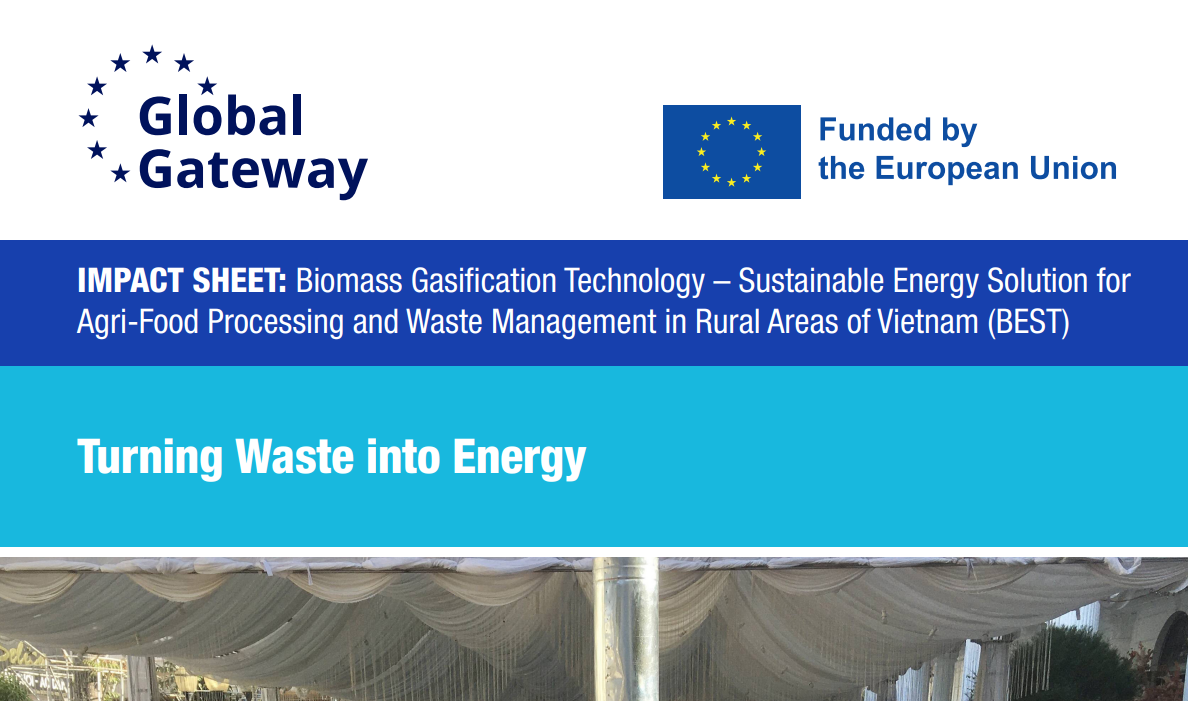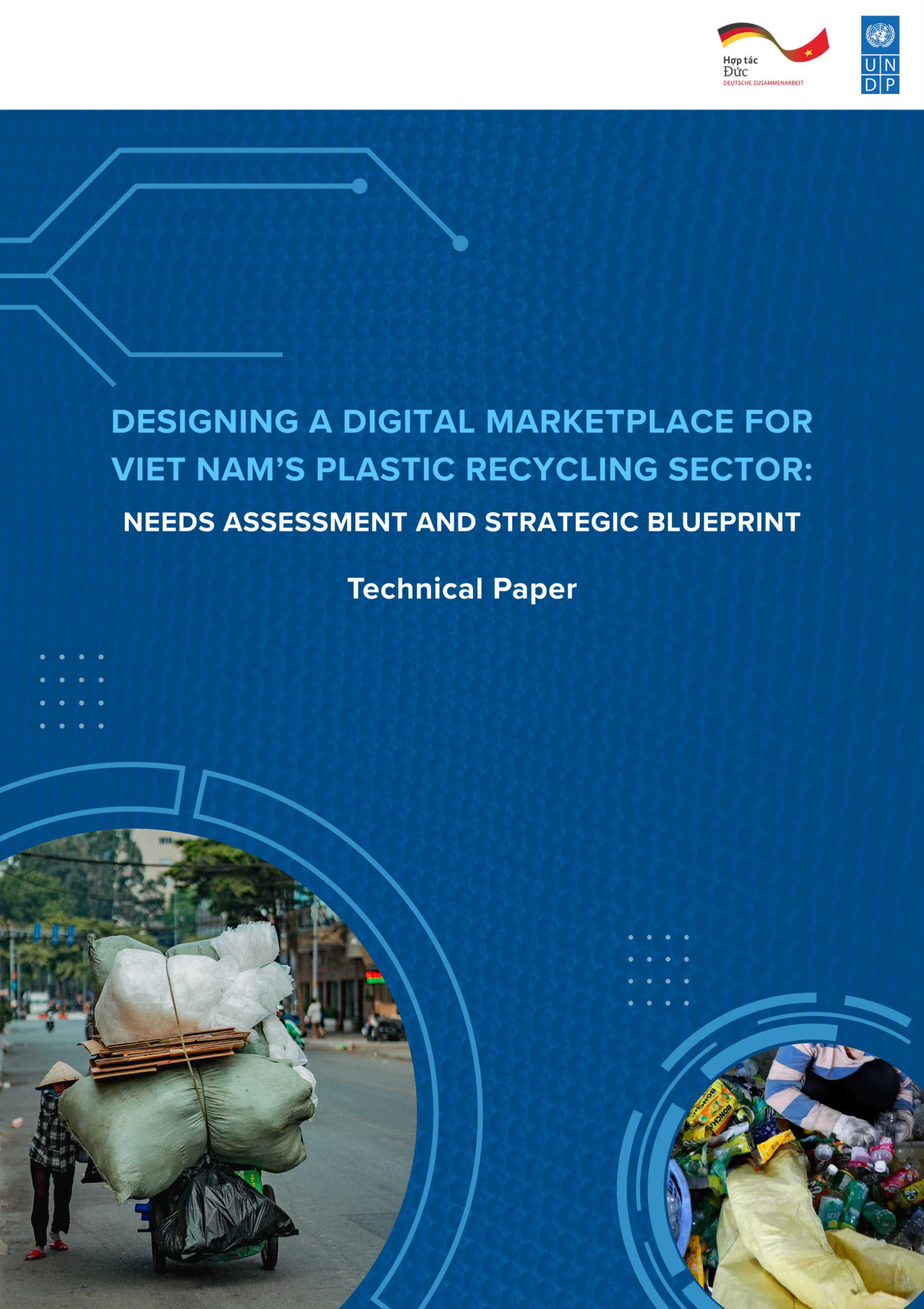Bioplastics – A Solution for White Pollution?
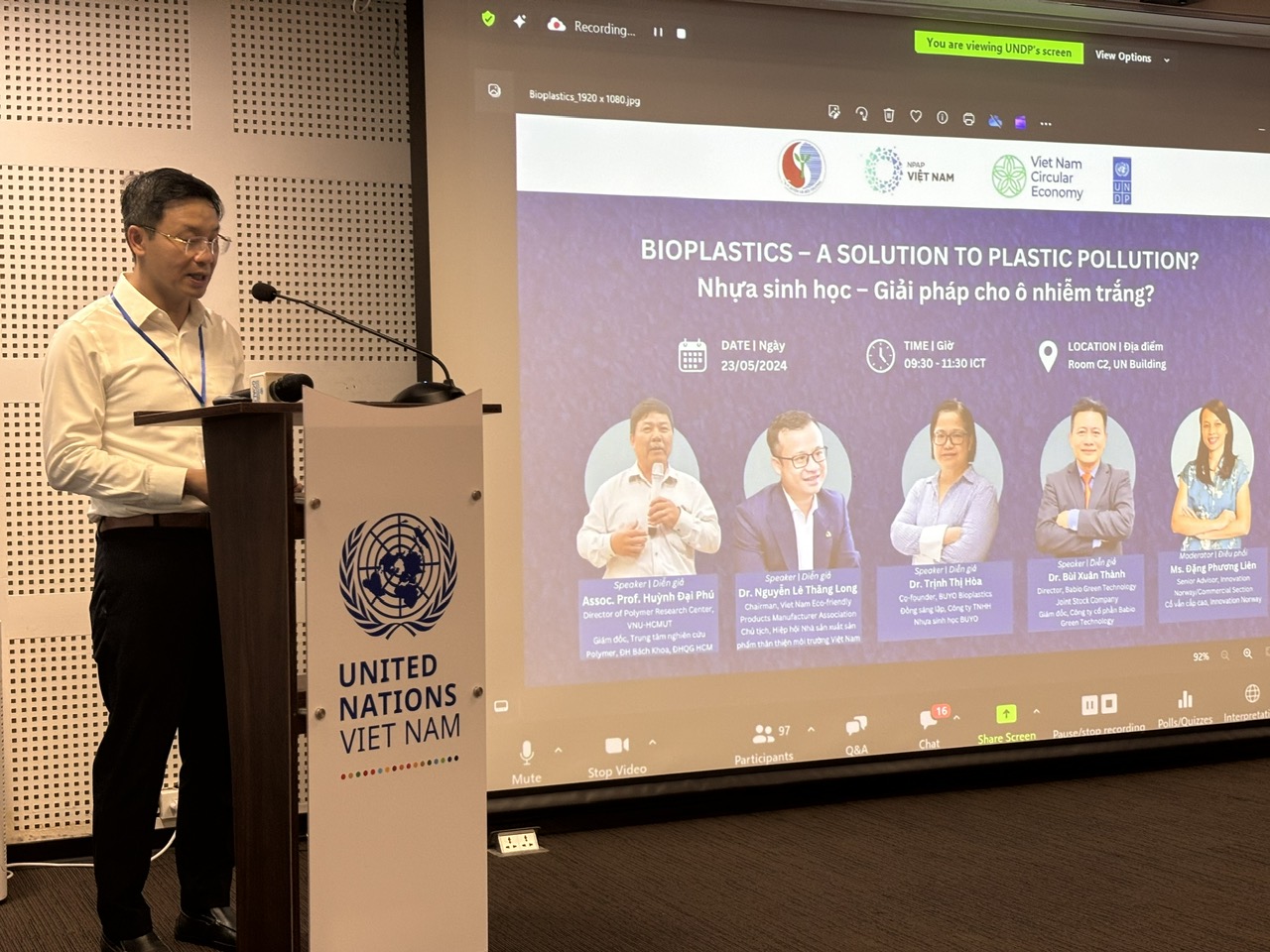
Under the theme “Bioplastics – A Solution for White Pollution?”, a May 23rd event organized by the National Plastic Action Partnership (NPAP) and the Vietnam Circular Economy Hub (CE Hub) attracted over 140 delegates. Participants included experts, associations, policymakers, development agencies, international organizations, and notably, businesses in the plastics industry.
The workshop’s speakers focused on providing an overview of bioplastics and showcasing bioplastic products being developed and manufactured by Vietnamese businesses. Discussions also addressed the role of bioplastics in the circular economy and the ongoing fight against plastic pollution.
In the opening presentation, Assoc. Prof. Dr. Huynh Dai Phu, Director of the Polymer Research Center at Vietnam National University Ho Chi Minh City, detailed the history, types, advantages, and disadvantages of bioplastics. He highlighted Vietnam’s large biomass resources and abundant raw materials for bioplastic production as key advantages for the industry’s growth within the country.
Dr. Nguyen Le Thang Long, Chairman of the Viet Nam Eco-friendly Products Manufacturer Association, followed with a presentation on the role of compostable packaging in recycling organic waste and reducing methane emissions from landfills. He emphasized that organic waste bags using regular nylon bags are not accepted at composting facilities due to contamination concerns. Compostable and biodegradable packaging, which decomposes at the same rate as organic waste and meets relevant standards, is crucial for efficient organic waste transportation and recycling without requiring major infrastructure changes.
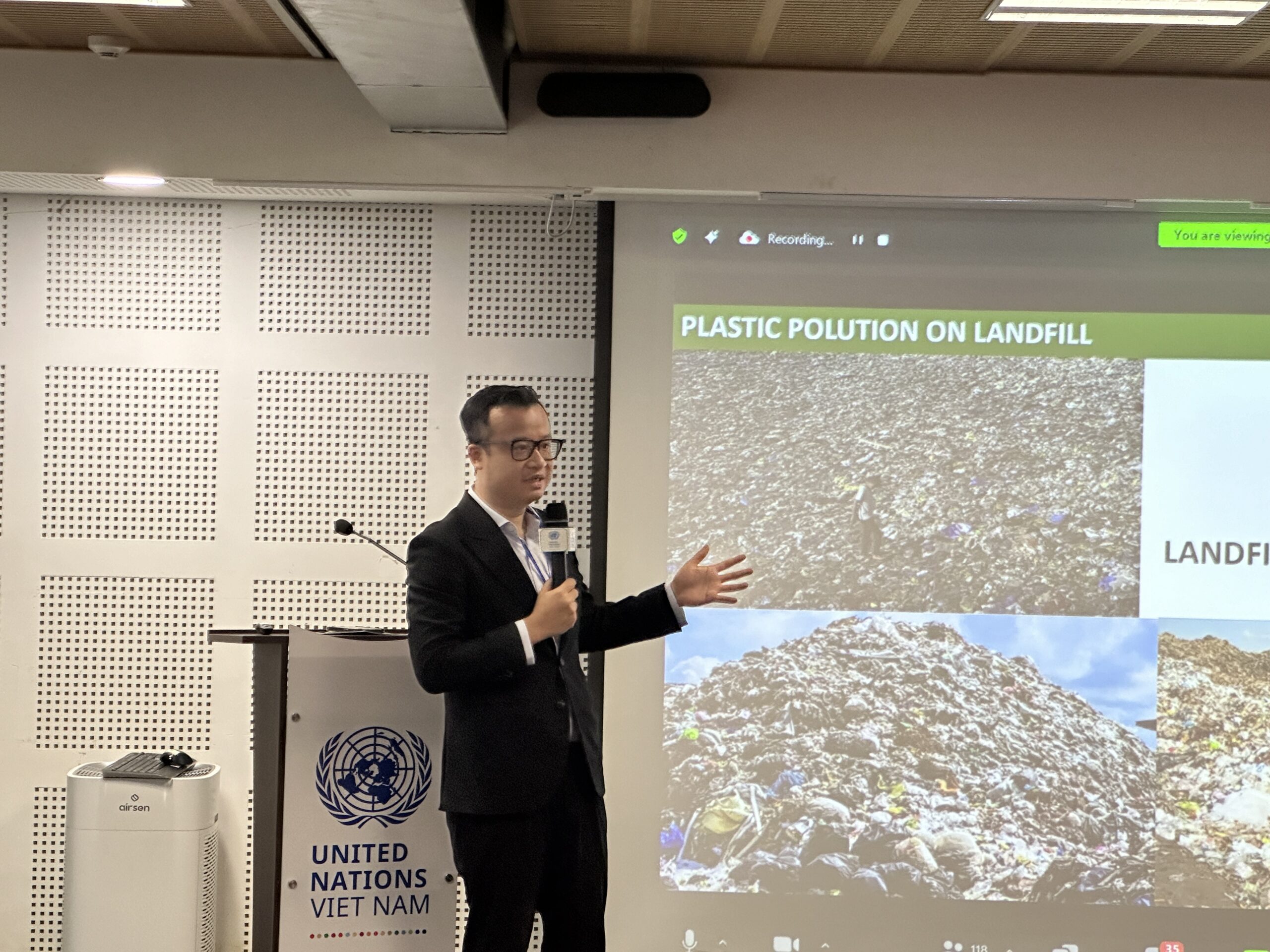
The final speaker, Dr. Trinh Thi Hoa, co-founder of Buyo Bioplastics Company, presented the technology of using organic waste, primarily beer residue and cassava, to produce various packaging products, medical materials, and cosmetics. This approach offers alternative materials derived from biological sources without requiring additional land for cultivation, thus not impacting national food security. Dr. Hoa also proposed policy recommendations to foster the growth of the bioplastics industry.
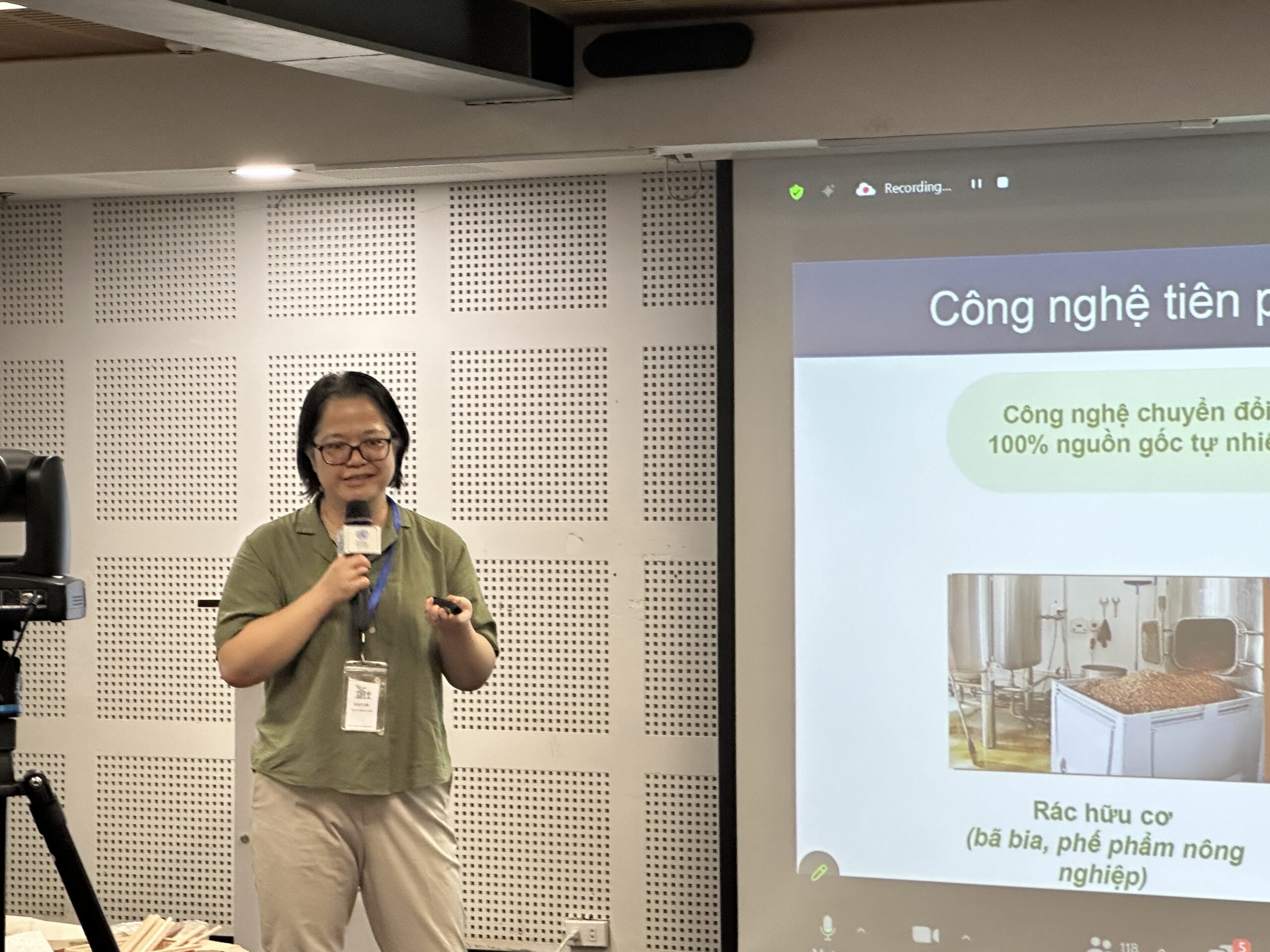
A panel discussion and Q&A session followed, featuring Dr. Bui Xuan Thanh, Chairman of Directors of Babio Green Technology Joint Stock Company, and moderated by Ms. Dang Phuong Lien, Senior Advisor of Innovation Norway. The discussion centered on topics such as bioplastics collection and treatment, their environmental impact compared to traditional plastics, and future trends in bioplastics.
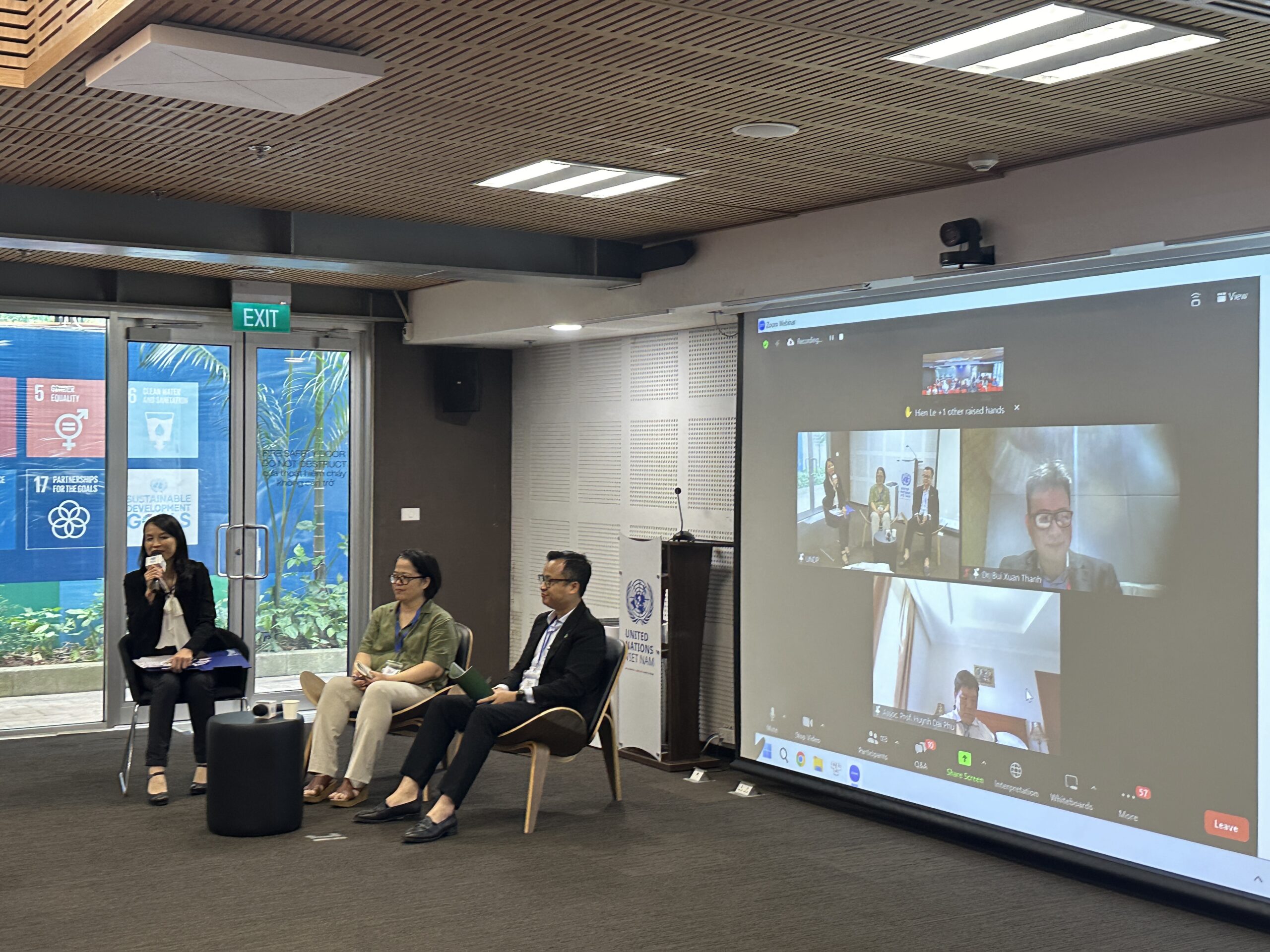
Key points from the discussion included:
- The necessity of source separation and separate collection with dedicated treatment processes to maximize the benefits of bio-based and biodegradable plastics and avoid contamination of recycled plastic.
- Vietnam’s abundant agricultural by-products provide a significant advantage for bioplastic production in terms of raw materials.
- The increasing global focus on carbon emissions and product life cycle traceability suggests that bioplastics will likely find applications in products that cannot be recovered or recycled, such as medical waste.
- The development of bio-based alternative materials that do not generate microplastics, along with strategies to maximize plastic material recycling, are priorities in some European countries.
To review the presentations and the full event recording, please click here.
To explore other topics in the seminar series, please click here.

